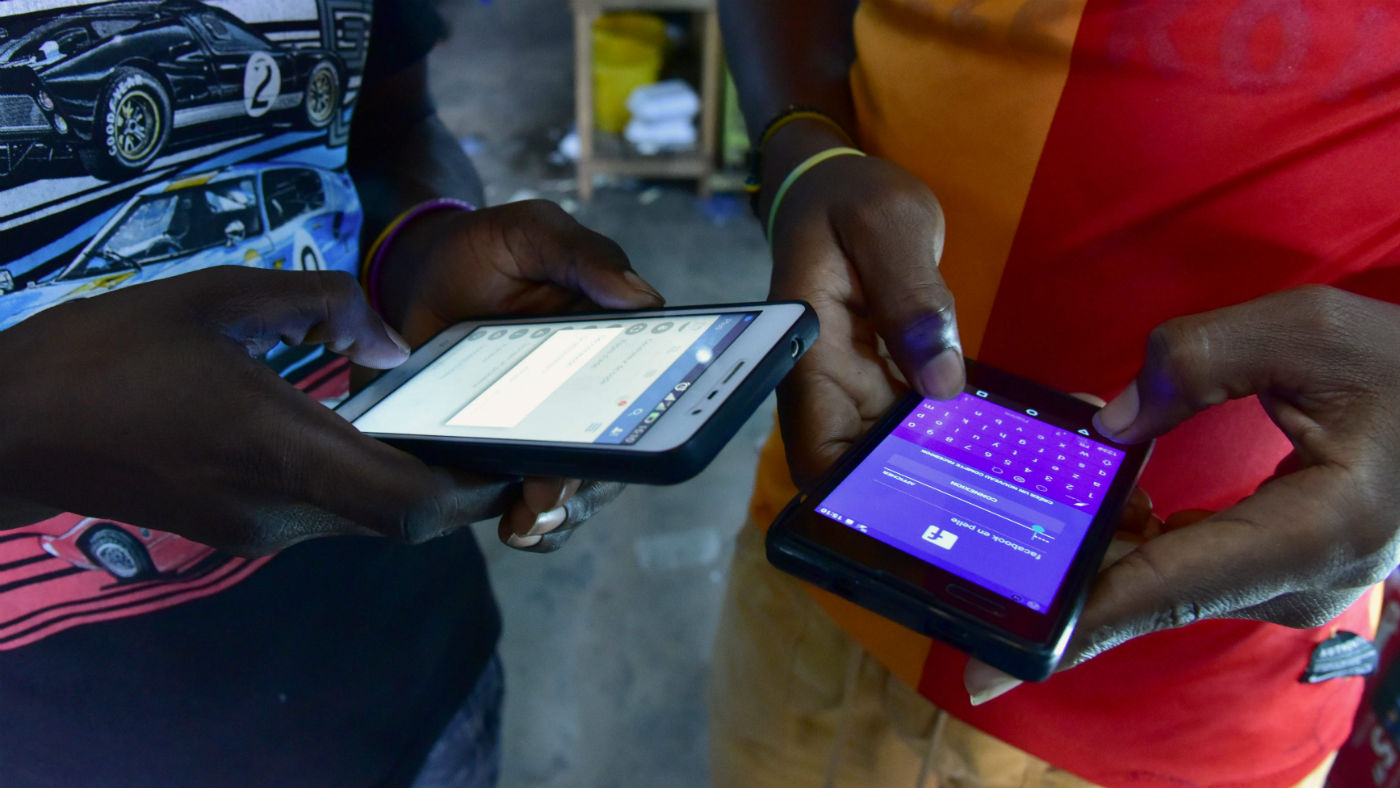Why internet access is a human right
New data suggests digital revolution will remain out of reach for billions

A free daily email with the biggest news stories of the day – and the best features from TheWeek.com
You are now subscribed
Your newsletter sign-up was successful
The growth of global internet access has slowed dramatically over the past decade, meaning opportunities afforded by the digital revolution will remain out of reach for billions of the world’s poorest and most isolated people.
Analysis of UN data to be published in a report next month but shared with The Guardian, shows the rate at which the world is getting online has fall sharply since 2015.
Looking further back over the past ten years, the Web Foundation, established by world wide web inventor Tim Berners-Lee, found growth in global internet access has dropped from 19% in 2007 to less than 6% last year.
The Week
Escape your echo chamber. Get the facts behind the news, plus analysis from multiple perspectives.

Sign up for The Week's Free Newsletters
From our morning news briefing to a weekly Good News Newsletter, get the best of The Week delivered directly to your inbox.
From our morning news briefing to a weekly Good News Newsletter, get the best of The Week delivered directly to your inbox.
The slowdown means the UN is set to miss its sustainable development goal of affordable internet access for all by 2020.
“We underestimated the slowdown and the growth rate is now really worrying,” said Dhanaraj Thakur, research director at the Web Foundation. “The problem with having some people online and others not is that you increase the existing inequalities. If you’re not part of it, you tend to lose out.”
An “alarming proportion” of the roughly 3.8 billion people who remain unconnected women, says The Guardian. Along with the rural poor, they are “substantially excluded from education, business and other opportunities the internet can provide”.
The discrepancy between countries is also striking. Somalia ranks bottom in the global league of internet access, with fewer than 2% of the population regularly online, compared to over 98% of Iceland’s citizens.
A free daily email with the biggest news stories of the day – and the best features from TheWeek.com
The growing divide between those online and offline led to the UN Human Right Council in 2016 to pass a non-binding resolution condemning countries that intentionally take away or disrupt its citizens’ internet access.
Due to the lack of access and suppressive tactics by certain governments, the United Nations declared that “online freedom” is a “human right”, similar to access to water, and one that must be protected.
Business Insider reported at the time that the resolution “did not receive universal backing”, with several countries, most notably Russia, China and South Africa, rejecting it.
This week, Media Monitoring Africa's executive director, William Bird, told South Africa’s Competition Commission's Data Services Market Inquiry that access to the internet should be considered a basic human right, and failure to do so would effectively take the country back to apartheid.
Bird said that while access to the internet is easily available to wealthy, the poor, who make up the majority of the population, have to resort to disproportionately high rates for data in order to get online, Fin24 reports.
With the world increasingly moving into a digital space, the marginalised will be further left behind if they are unable to afford access to the internet, he said.
-
 Properties of the week: pretty thatched cottages
Properties of the week: pretty thatched cottagesThe Week Recommends Featuring homes in West Sussex, Dorset and Suffolk
-
 The week’s best photos
The week’s best photosIn Pictures An explosive meal, a carnival of joy, and more
-
 The ‘ravenous’ demand for Cornish minerals
The ‘ravenous’ demand for Cornish mineralsUnder the Radar Growing need for critical minerals to power tech has intensified ‘appetite’ for lithium, which could be a ‘huge boon’ for local economy
-
 Epstein files topple law CEO, roil UK government
Epstein files topple law CEO, roil UK governmentSpeed Read Peter Mandelson, Britain’s former ambassador to the US, is caught up in the scandal
-
 Iran and US prepare to meet after skirmishes
Iran and US prepare to meet after skirmishesSpeed Read The incident comes amid heightened tensions in the Middle East
-
 Israel retrieves final hostage’s body from Gaza
Israel retrieves final hostage’s body from GazaSpeed Read The 24-year-old police officer was killed during the initial Hamas attack
-
 China’s Xi targets top general in growing purge
China’s Xi targets top general in growing purgeSpeed Read Zhang Youxia is being investigated over ‘grave violations’ of the law
-
 Panama and Canada are negotiating over a crucial copper mine
Panama and Canada are negotiating over a crucial copper mineIn the Spotlight Panama is set to make a final decision on the mine this summer
-
 Why Greenland’s natural resources are nearly impossible to mine
Why Greenland’s natural resources are nearly impossible to mineThe Explainer The country’s natural landscape makes the task extremely difficult
-
 Trump, Iran trade threats as protest deaths rise
Trump, Iran trade threats as protest deaths riseSpeed Read The death toll in Iran has surpassed 500
-
 Iran cuts internet as protests escalate
Iran cuts internet as protests escalateSpeed Reada Government buildings across the country have been set on fire